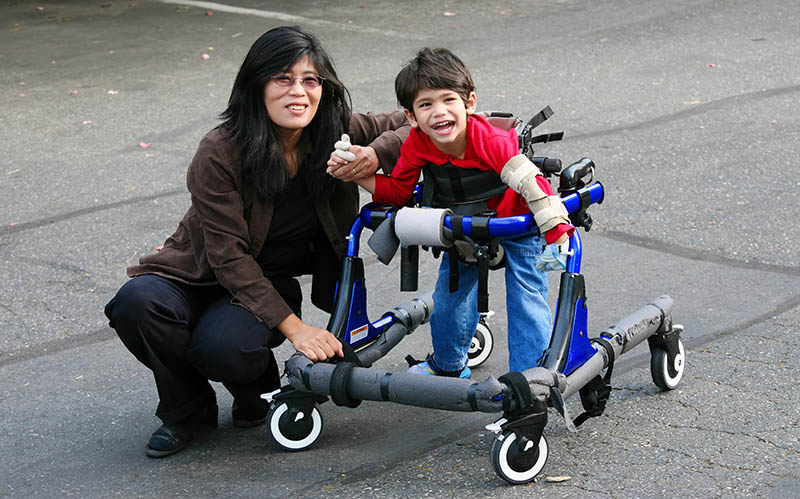From DisabilityScoop.com —
By Michelle Diament —
Federal Medicaid officials are issuing new guidance aimed at making it easier for children with complex medical conditions like severe autism and cerebral palsy to access the care they need, even if that means crossing state lines.
Under a new optional program, states can receive a temporary bump in federal Medicaid funding to create a “health home” benefit.
The offering, established by Congress in 2019, is designed to address the needs of children with significant health issues who require specialized care that often necessitates traveling out of state, according to the Centers for Medicare and Medicaid Services.
In a 15-page letter sent last week to state Medicaid directors, CMS is now detailing how states can partake in the new program, which will begin Oct. 1.
“Every child deserves the care and support they need to stay healthy and thrive. This new Medicaid health home benefit will give states new options and financial incentive to improve care for children with complex medical conditions,” said Secretary of Health and Human Services Xavier Becerra.
The “health home” program can cover Medicaid-eligible children under age 21 with a “life-limiting illness or rare pediatric disease” or “one or more chronic conditions that cumulatively affect three or more organ systems and severely reduces cognitive or physical functioning (such as the ability to eat, drink, or breathe independently) and that also requires the use of medication, durable medical equipment, therapy, surgery, or other treatments,” the guidance indicates. Chronic conditions can include cerebral palsy, spina bifida, epilepsy and severe autism, among others, CMS said.
With the program, “states can cover coordination of care for children with medically complex conditions, including coordination of the full range of pediatric specialty and subspecialty medical services and coordination of care and services from out-of-state providers,” the guidance states.
Out-of-state medical services should be covered just like in-state offerings if they are “more readily available in the other state” or if it is “general practice for beneficiaries in a particular locality to use medical resources in another state,” the letter indicates.
States that choose to offer the benefit will receive a 15-percentage point increase in federal matching funds for costs associated with the service during the initial two quarters as well as ongoing technical assistance from CMS.
“This new state plan option is about ensuring that children and families can get coordinated, high-quality care — particularly children with complex medical conditions,” said CMS Administrator Chiquita Brooks-LaSure. “CMS is committed to working with states interested in pursuing this option to ensure they can quickly and efficiently get kids the care they need.”

